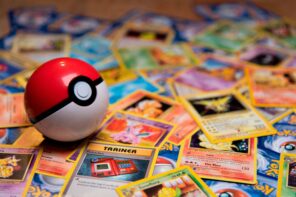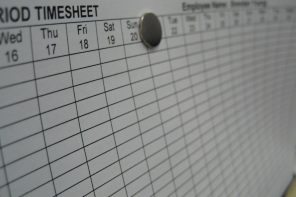A note from the author: This article is not aimed at those working essential jobs, taking care of children, or those coping with health issues. Instead, it is directed towards those who, like the author, are fortunate to have the time and means to be productive.
Back in mid-March, before Quebec closed all non-essential businesses, I remember making to-do lists every morning, only to stare at blank documents later that night. The essays I had due? Nada.The notes I had to write? Zilch. Even when McGill cancelled two weeks of class, eliminating any excuse not to work, I could do nothing but flip idly from tab to tab, my mind somehow foggy and hyperactive at the same time. If Isaac Newton could discover gravity and William Shakespeare could write King Lear while in self-isolation, how hard could it be for a university student to complete some simple coursework?
As we relearn how to take walks and buy groceries during this unprecedented period, it makes sense why we are all feeling disoriented.
While these kinds of messages continue to proliferate online, it’s natural to feel unproductive. Newton and Shakespeare took over a year to complete their work, and they were geniuses; for us average Joes, we’ve only been self-isolating in our homes for a little over a month. As we relearn how to take walks and buy groceries during this unprecedented period, it makes sense why we are all feeling disoriented. Try as we might to readopt altered versions of our norms, this loss has alienated us from our sense of agency, causing us to relapse into reactive mindsets.
Although a reactive mindset is useful for coping with unknown situations, it is a proactive mindset through which most of us can achieve productivity. Indeed, before sitting down to write an essay, start a problem set, or study for an exam, we optimize time by detailing outlines, establishing quotas, and organizing study schedules. Because the future is presently hard to visualize, by contrast, it can feel nearly impossible to maintain a forward-looking, proactive mindset. Left to the whims of government mandates and dismal updates, many of us are (understandably) suspended in a newfound fear of the unknown.
While I agree that health should always take first priority, it’s helpful to remember that feeling productive and having a sense of purpose actually improves one’s well-being.
In the grand scheme of things, productivity in a pandemic may not seem that important. As such, on the other end of the “be like Newton and Shakespeare” posts, you’ll see calls for self-care and relaxation, should one have the fortune to do so. While I agree that health should always take first priority, it’s helpful to remember that feeling productive and having a sense of purpose actually improves one’s well-being. In fact, there’s an entire field of study that focuses on this idea: according to teachings in positive psychology, the majority of our stress does not stem from external conflict, but from an internal lack of fulfilment.
In this vein, one sees why remaining idle for long periods of time can lead to feelings of guilt and self-loathing, which are obviously harmful to mental health. With the extensions professors are granting and exams right around the corner, I argue that it’s now even more detrimental to submit to one’s reactive mindset. In such a frame of mind, “I have time” becomes a neverending refrain, amplified by our perception of countless days upon which we can subsequently “do it later.” Thus, while you may think you have time to relax, procrastination may lead to that thing due in two weeks being suddenly due tomorrow.
Just like how it takes more energy to push a static object than a moving one, the longer you’re inactive, the harder it will eventually be to get work done. Put simply, starting is often the hardest, albeit most important part of being productive, especially when this entails adopting a proactive mindset in uncertain times. Before one can break free of their reactive mindset, however, one must actually want to do so.
For many, “being productive” has come to mean forcing oneself to work. By secluding yourself in a cold room with nothing but a textbook, you may finish the assigned readings, but this is sure to be a demoralizing experience. Because one is most productive when they’re personally engaged with what they’re doing, the first step to productivity is to remind oneself of why some task is worthwhile, thereby painting it in a positive light. Whether this be taking the time to cook a nutritious meal, go for a run, or start studying for exams, any short-term activity will feel like a chore until you recognize its long-term benefits.
From this point, one can then progress to gradually reclaiming a sense of agency. This can be done, for example, with something as simple as distinguishing leisure spaces from tidy workspaces. By submitting assignments while lying in bed or scrolling through Instagram at a cluttered desk, one muddies their mental associations between work and play, leading to feelings of stress where one ought to relax, and distraction where one ought to concentrate. This idea is especially relevant now that most of our days are spent in one home. Thus, during “work hours,” consider blocking distracting websites from your laptop, leaving your phone in another room, and sticking to one task at a time. Then, towards the end of the day, try to finish your work outside your bedroom, thus providing an untouched space in which one can comfortably unwind.
Regardless of our varying tasks, goals, and stages in life, it’s comforting to remember that we’re all in a similar situation.
One last activity that improves productivity is 1) breaking one’s assignments down into smaller tasks, and 2) recording each task’s completion in a spreadsheet, mind map, or some other visual tracker. By creating a visual representation of a project’s component parts, one develops a broader appreciation of the work to be done, eliminating the daunting feeling of blindly starting an assignment. Then, as one checks off tasks as they are completed, this progress-charting causes the brain to release dopamine, incentivizing one to continue on with their work.
In times like these, it can feel like we’re all stranded at sea, riding wave after wave as we cling to our individual rafts. Regardless of our varying tasks, goals, and stages in life, it’s comforting to remember that we’re all in a similar situation. Whatever you’re experiencing, you’re not alone. By reaching out to nearby rafts for both support and to offer help, you will eventually be better off. Meanwhile, remind yourself of your end goals, focus on what you can control, organize your tasks into bite-size chunks, and keep paddling forward until you reach calmer waters.








